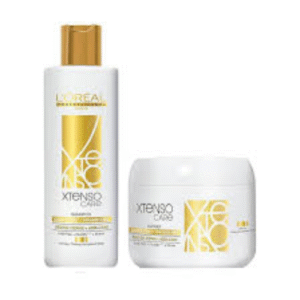Conditioner Overuse: Risks and How to Avoid Them. Conditioner is a must-have in any hair care routine, providing hydration, smoothness, and shine. However, overusing conditioner can lead to unintended consequences, from lifeless locks to scalp issues. If you’ve ever wondered why your hair feels weighed down or greasy despite regular washing, conditioner overuse might be the culprit. In this guide, we’ll uncover the risks of overusing conditioner and provide actionable tips to strike the perfect balance for healthy, vibrant hair.
Risks of Conditioner Overuse
- Weighed-Down Hair
Over-applying conditioner, especially on fine or thin hair, can result in a heavy, greasy appearance. This happens because excessive conditioner builds up on the hair strands, making them limp and dull. - Oily Scalp
While conditioner is meant for your hair, applying it to the scalp can disrupt your skin’s natural oil balance, leading to an oily and sticky scalp. - Product Buildup
Using too much conditioner or not rinsing it out properly can cause residue buildup. Over time, this can make your hair appear dirty, block nutrients, and hinder healthy growth. - Hair Breakage
Believe it or not, over-conditioning can weaken your hair. Excess moisture makes hair overly soft, reducing elasticity and leading to breakage. - Scalp Irritation
Conditioners often contain chemicals and fragrances that, when over-applied, can irritate the scalp, leading to itchiness and even dandruff.
How to Avoid Conditioner Overuse
- Use the Right Amount
A dime-sized amount of conditioner is typically enough for short hair, while a quarter-sized amount works for longer hair. Adjust based on your hair’s thickness and length. - Apply Mid-Length to Ends Only
Conditioner is designed for the hair shaft, not the scalp. Focus on the mid-lengths and ends where moisture is needed the most. - Choose the Right Conditioner for Your Hair Type
Pick a conditioner that suits your specific hair needs—whether it’s for fine hair, curly hair, or color-treated locks. Using the wrong product can lead to overuse. - Rinse Thoroughly
Ensure you rinse out the conditioner completely to avoid residue buildup. Cool water helps seal the cuticle for added shine. - Incorporate Deep Conditioning Sparingly
Deep conditioners and masks are great for restoring moisture but should only be used once a week or as needed. Overdoing it can overwhelm your hair. - Alternate Hair Care Products
Switch between lightweight and heavy conditioners or use leave-in conditioners sparingly to prevent overloading your hair with moisture. - Understand Your Hair’s Needs
Pay attention to how your hair responds. If it feels too soft, flat, or greasy, scale back on the amount or frequency of conditioner usage.
Signs You Might Be Overusing Conditioner
- Persistent greasiness even after washing
- Flat, limp, or lifeless hair
- Excessive hair fall during washing
- Increased scalp itchiness or irritation
- Difficulty styling due to a slippery texture
Conclusion
Conditioner is an essential part of maintaining soft, manageable hair, but moderation is key. Overusing conditioner can lead to a variety of issues, from greasy hair to scalp irritation. By understanding the risks and adopting a balanced hair care routine, you can enjoy all the benefits of conditioner without the drawbacks.
Remember, healthy hair starts with understanding its needs. Conditioner Overuse: Risks and How to Avoid Them. Choose the right products, apply them correctly, and watch your hair transform into its best self.
Would you like more personalized recommendations? Let us know in the comments!




